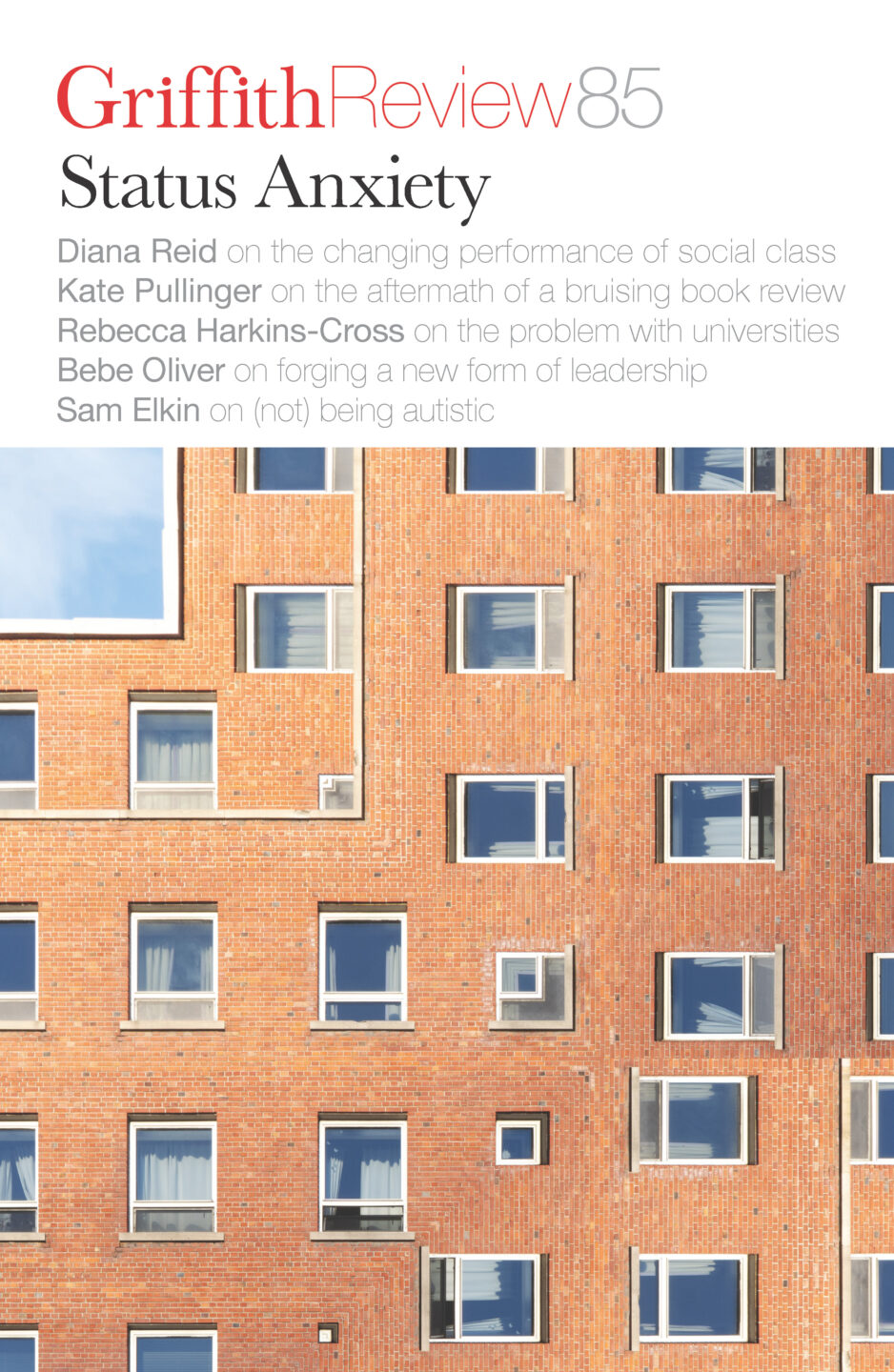Featured in

- Published 20240806
- ISBN: 978-1-922212-98-6
- Extent: 216pp
- Paperback, ePUB, PDF


Already a subscriber? Sign in here
If you are an educator or student wishing to access content for study purposes please contact us at griffithreview@griffith.edu.au
Share article
About the author

Rebecca Harkins-Cross
Rebecca Harkins-Cross is a lecturer in creative writing at RMIT University. Her essays and cultural criticism have been published widely in journals and periodicals...
More from this edition

Aca-lyte
Poetry Che Guevara is white and wearing a shirt with his face on it, mansplaining Derrida or Adorno a hat like your grandfather used to wear though...

Joker in the pack
IntroductionStatus itself is a little like a riddle: a code to be cracked, a hand in which you can’t see all the cards. Unless you’re Batman, however, the stakes for solving riddles tend to be comfortingly low, whereas the pressures of deciphering status can occupy a far more consequential role in our lives (it’s all fun and games until somebody loses their cultural capital).

Animal control
FictionShe’d seen her mother a couple of times since the lockdown ended, but it was still a shock. Margaret had lost some vital density that seemed ethereal, although it was obviously about her body – the protruding cheekbones, eyes sunk too deep in her head and hair a wispy cap across her scalp. Only her hands looked the same – her piano-playing hands resting neatly in her lap, long-fingered and surprisingly preserved. The rest of her was ghostly, and there was a blink when she looked at her daughter and the lights didn’t go on. SJ felt a momentary sinkhole: not that, not yet.